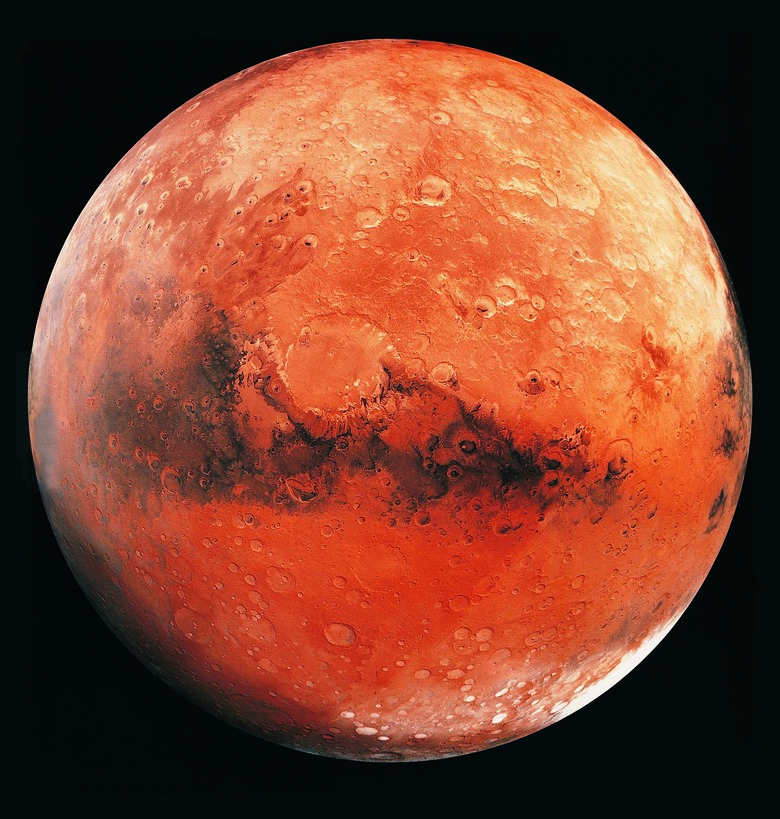What Is The Warmest Part Of Mars?
Earth is nearly 150 million kilometers (93 million miles) from the sun, but Mars is almost 80 million kilometers (50 million miles) farther. To find out more, NASA launched the Mars Science Laboratory in November 2011. By the following August, its Curiosity rover had landed on the planet's surface. Temperature readings were among the data collected. In the area Curiosity investigated, ground temperatures varied dramatically from day to night, with a high of just under 3 degrees Celsius (37 degrees Fahrenheit) to a low of minus 91 degrees Celsius (minus 131.8 degrees Fahrenheit).
Hot Spot
Hot Spot
Three and a half billion years ago, the climate on Mars was probably warm and wet like Earth's. Over time, carbonate rock formation used up much of the carbon dioxide in the atmosphere that held heat in. Mars' atmosphere is far thinner now, so the temperatures are significantly lower. In general, the hottest section of Mars, its equator, does not get warmer than about 21 degrees Celsius (70 degrees Fahrenheit) at noon during the summer.
Cite This Article
MLA
Sherwood, Susan. "What Is The Warmest Part Of Mars?" sciencing.com, https://www.sciencing.com/warmest-part-mars-20041/. 24 April 2017.
APA
Sherwood, Susan. (2017, April 24). What Is The Warmest Part Of Mars?. sciencing.com. Retrieved from https://www.sciencing.com/warmest-part-mars-20041/
Chicago
Sherwood, Susan. What Is The Warmest Part Of Mars? last modified March 24, 2022. https://www.sciencing.com/warmest-part-mars-20041/
